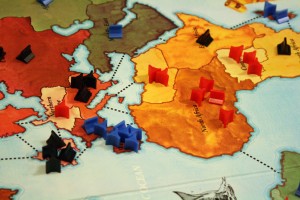 Many States view human rights as an integral part of their foreign policy – or at least claim to. There are many challenges in fully integrating human rights into foreign policy, and in keeping them there through difficult geopolitical circumstances.
Many States view human rights as an integral part of their foreign policy – or at least claim to. There are many challenges in fully integrating human rights into foreign policy, and in keeping them there through difficult geopolitical circumstances.
On November 13, 2013, the Ireland Department of Foreign Affairs will host its annual NGO Forum on Human Rights in Dublin. The subject is “Ideals and Interests; the place of Human Rights in Foreign Policy.” The goal of the conference is to examine the difficulties in the integration of human rights into foreign policy, and to gauge areas of progress in recent years.
We’d like to hear your views on the subject, particularly as it relates to the freedoms of peaceful assembly and of association. These freedoms are particularly important in foreign policy considerations at the moment: massive protest movements continue in geopolitically strategic countries such as Bahrain and Egypt, and a growing number of states are implementing an array of harsh restrictions on association rights.
Is it realistic to believe that human rights can be a positive force that anchors an effective foreign policy, or is it the other way around: An anchor that states view as weighing them down, to be cast aside when interests perceived as more important arise?
What are the complexities of reconciling human rights ideals with political, economic and development interests? Does a principled stand on human rights make a state a more attractive and stable ally in foreign policy matters? And can an unprincipled stand on human rights actually endanger a state’s foreign policy interests?
We invite you to leave your comments below, or to e-mail us at info@freeassembly.net.

 Tweet
Tweet
 Facebook
(0)
Facebook
(0) 


